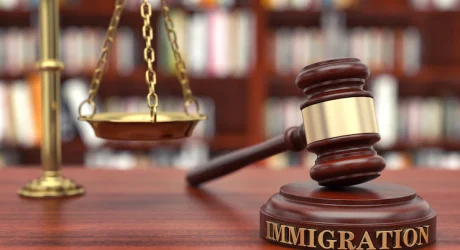Getting injured in an accident is an unpleasant experience. As an accident victim, you should be familiar with legal rights and proceedings. There are chances that you will make mistakes when filing a personal injury claim.
Mistakes are common, but committing the mistakes on this list will jeopardize your chances of receiving reasonable compensation. To have a better understanding of your legal options, you can visit sites like www.dolmanlaw.com.
6 Common Mistakes Accident Victims Make:
- Not reporting to the police
- Not collecting evidence
- Giving the recorded statement
- Accepting a lowball settlement offer
- Missing the deadline for filing a claim
- Not consulting a personal injury attorney
Not Reporting To The Police

After an accident, some victims may leave the accident scene. They will be scared to report to the police. This is one of the biggest mistakes a victim can make. Because, without informing the police, you cannot take any legal action against the at-fault party.
The police report is an important document that will be helpful in your personal injury claim. That’s why you should call the police and report the accident. The police report includes:
- How did the accident happen?
- Who were the parties involved in the accident?
- When and where did the accident occur?
- Witness details
- Traffic signs and weather conditions
Not Collecting Evidence
Victims may leave the accident scene without gathering any evidence. Without evidence, they cannot prove the negligence of the at-fault party. This is also a huge mistake, which will hurt your claim.
Evidence plays a major role in a personal injury claim. The following are some of the important pieces of evidence that you can gather from the accident scene:
- Capture pictures and videos of the accident scene
- Take photos and videos of the injuries sustained and the property damage
- Details of the other driver and their insurance information
- Weather-related information
Giving Recorded Statements

The at-fault party’s insurance company will ask you to give a recorded statement about the accident. Victims may think that the insurance company will make a favorable decision for the compensation claim. Unfortunately, that is not true.
A recorded statement can affect your compensation in a personal injury claim. So it is important to be careful what you share and how you convey the details of the accident, as the insurance adjuster will most often try to use your words against you and deny or reduce the value of your claim.
At the same time, you should never admit fault or apologize. Before giving any statement, you should have a word with your attorney.
Accepting A Low Settlement Offer
Accepting a low settlement offer from the at-fault party’s insurance company without negotiating or consulting an attorney is also a mistake. Most of the time, an insurance adjuster will convince you to accept a low offer,
This offer will never compensate for all the injuries and damages you sustained in the accident. Keep in mind that you have the right to reject any offer that you are not satisfied with.
Missing The Deadline For Filing A Claim

Victims can file a personal injury claim after recovering from their injuries. But if you decide to file a claim later, then you will miss the deadline. This deadline is called the statute of limitations.
Every state has a statute of limitations for filing a personal injury claim. If you miss this time limit, you will lose your right to sue and recover compensation.
Not Consulting A Personal Injury Attorney
Some victims may think that they can handle a claim on their own without legal assistance. If you make this mistake, then you will end up with losses. Handling a personal injury claim requires legal knowledge.
That’s why you should hire an experienced attorney for your personal injury claim. A personal injury lawyer will work hard to get you fair compensation and justice.
Final Thoughts
It is important to remember the mistakes mentioned in this article when filing a personal injury claim. By avoiding them, you can expect justice and reasonable compensation from the at-fault party’s insurance adjuster.
Read Also:




























